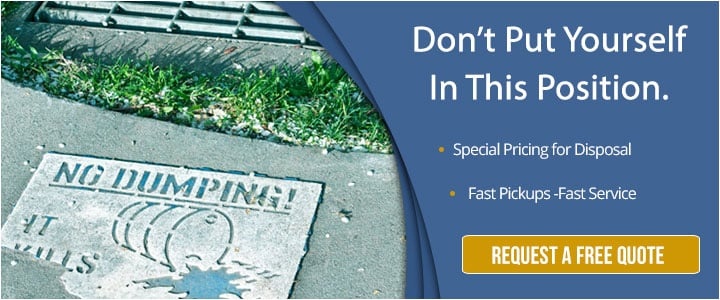Neutralizing Chemicals | Maybe!
Waste disposal problems can be a difficult challenge for many businesses to solve. Chemical waste products generated by manufacturing processes need to be handled safely, in a way that doesn’t slow down or disrupt your business’s production or operations, but that also makes sense for your bottom line.
Some business owners attempt to treat or neutralize chemicals in-house in order to save money or expedite the process. However, there are significant risks and costs associated with this. If you are trying to determine the best strategy for your hazardous waste disposal, here are some important rules to keep in mind.

Do: Educate Yourself about the Dangers of Chemical Disposal
Neutralizing chemicals or mixing chemicals can pose serious threats to both people and property. A reaction can create a hazardous gas or an explosion. Businesses need to be aware of their liability for damages or injuries sustained by any accidents associated with chemical waste disposal. The greater the quantities and variety of chemicals involved, the more opportunities there are for mistakes and accidents that may have harmful consequences.
Have an experienced and certified employee who can oversee the neutralizing chemical process. If you do not have such a person then seek a skilled professional company to oversee your waste disposal. When evaluating someone for this role, ask yourself:
- Do they have substantive, hands-on experience in the field?
- Do they know how the chemicals generated by your business will interact with each other?
- Can they reliably calculate and execute the necessary dilution process?
Working with a competent, knowledgeable expert will lower the risks of a dangerous accident.
Don't: Ignore State and Federal Regulations
For health and safety reasons, chemical waste disposal is regulated by a number of local, state, and federal government agencies, which mandate that a business have a permit in order to legally neutralize chemicals. Oftentimes, obtaining this permit requires certification at several different state and local government agencies. Working with a specialized hazardous waste company, which stays up-to-date with current agency regulations, can ensure your business’s legal compliance with your local laws and codes.
Do: Conduct a Comprehensive Cost Analysis
Depending on the amount of waste products generated, and the number of different substances involved, it may not make good financial sense for your business to keep a dedicated chemical disposal professional on staff. One employee who may already be juggling many different tasks and responsibilities may not have the time or resources available to obtain the training, experience, and certifications needed to safely handle all of the different chemical waste disposal needs that may arise for your business.
Although it may seem more affordable in some ways to manage your business’s waste disposal in-house, be sure to take the following expenses into account when conducting a cost-benefit analysis:
- What is the opportunity cost of diminished productivity from reassigned employees (who may not be able to handle unfamiliar disposal processes in an efficient manner)?
- What would be the cost of potential production delays due to mistakes, accidents or work flow back-ups?
- What is the expense that your business is incurring by purchasing and storing all of the needed treatment equipment and supplies?
- What additional liability insurance for damages or lawsuits will you need to obtain?
Often, a greater cost savings can be obtained by working with a certified hazardous waste disposal company, who can streamline the disposal process for you, respond promptly to unexpected situations, and allow your staff to concentrate more fully on their other tasks.
There are many factors to consider when deciding what hazardous waste disposal strategy is right for your company, and you should fully research the available options to understand the best course of action for you. In many cases, it is safer, more cost-effective, and more efficient to develop a relationship with a certified hazardous waste disposal company, who can manage these challenges for you, thus freeing up your business to concentrate on your own operations.


Comment